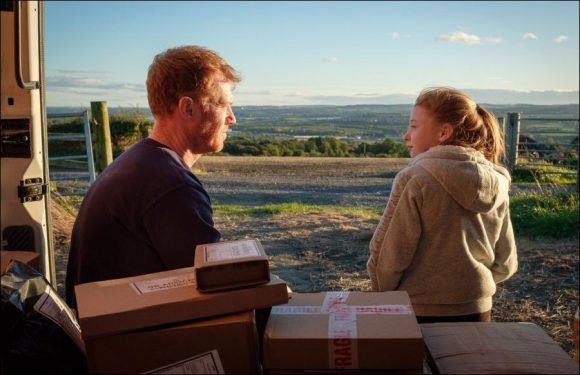Ken Loach’s latest film competing for the Golden Palm at the Cannes Film Festival this year, “Sorry, We Missed You” In today’s England “zero-term contract” forced to work with a family with two children tells the struggle to survive. The film will be screened for the first time in October and will be released in November 22, 2019 in the United States.
Ricky and his family have been fighting an uphill struggle against debt since the 2008 financial crash. An opportunity to wrestle back some independence appears with a shiny new van and the chance to run a franchise as a self employed delivery driver. It’s hard work, and his wife’s job as a carer is no easier. The family unit is strong but when both are pulled in different directions everything comes to breaking point.
When we look at the statistics, 4.7 million people in England, 1/6 of the total working population, work in precarious, short-term, low-wage jobs. The “zero-term contract” in the film is a way of working in the UK after the 2008 crisis. According to this form of contract, the worker makes an agreement with a certain employer that he is “able to work fakat, but neither the working hours and hours nor the wages he receives for his work are included in this contractual agreement and compared to other regular, full-time workers. few rights.
Some employers have a zero-term contract holiday, sick leave and dismissal. as the most ideal way to get rid of the financial obligations in the situation. Due to this partly followed path, British law makes a distinction between the worker and the employee, and in many cases employees under this contract benefit from very little employment rights (sick leave, parental leave, etc.). Today, one in 20 employees in the UK cannot benefit from annual holiday leave.
Ricky, an opportunity in front of his friend’s proposal in the period of unemployment, taking advantage of a cargo delivery to start working as a laborer. Initially, “this man who wants to start his own business”, hoping to make his family comfortable and generate a good income, drags his entire family into great unhappiness. The business, which he started with the dream of “owning his own business üyor, led him to a system of slavery, ranging from the obligation to rent or purchase the car to be used for delivery, to work without the right to paid leave, and even to the company debt.
His wife, Abby, is also a self-employed nurse. This situation, combined with the length and uncertainty of working hours, causes the family not to care for their children and their children have problems at school. When the human and health dimension is involved, the pressure of the superiors, the emotional pressure and solidarity experienced by the parents are beautifully rendered in the film.
At first, the film reminds us of the cargo workers who compete in our country in time and endanger their lives for this cause. It reminds us that the precarious way of working in our country for the time being in health, transportation and tourism, as in England, is becoming more widespread as a solution to the crisis.
The end of the film will be shocking for laborers struggling with poverty in their daily lives due to the economic crisis. Like other Ken Loach films, a good critique of capitalism and must be followed and of course the call for struggle.
Sorry, We Missed You (2019)
Directed by: Ken Loach
Starring: Kris Hitchen, Debbie Honeywood, Nikki Marshall, Harriet Ghost, Linda E Greenwood, Brad Hopper, Rhys Stone, Katie Proctor, Alfie Dobson, Mark Birch, Charlie Richmond
Screenplay by: Paul Laverty
Production Design by: Fergus Clegg
Cinematography by: Robbie Ryan
Film Editing by: Jonathan Morris
Costume Design by: Jo Slater
Art Direction by: Julie Ann Horan
Makeup Department: Anita Brolly
Music by: George Fenton
MPAA Rating: None.
Distributed by: Kino Lorber
Release Date: November 22, 2019
Visits: 109






